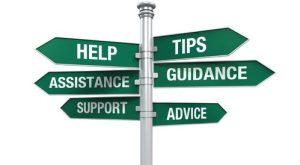Faculty Mentoring Resources
The Center for ADVANCing Faculty Success will continue to add resources for use by faculty in their roles as mentors and mentees.
Faculty with additional questions are invited to contact Dr. Yvette Huet, The Center for ADVANCing Faculty Success Director and Coordinator of the new faculty mentoring effort, at mentoring@charlotte.edu
The Science of Effective Mentorship in STEMM: Online Guide V1.0
The National Academies of Sciences created an interactive online guide to accompany the 2019 report – See link above
General Resources (From UNC Charlotte Graduate Student Webpage)
Journal Articles and Publications
Best Practices
Committee on Science, Engineering, and Public Policy (1997). Adviser, Teacher, Role Model, Friend: On Being a mentor to Students in Science and Engineering. National Academy Press: Washington, DC. This booklet provides a comprehensive overview of advising and mentoring relationships between faculty and a broad range of students (i.e., undergraduate to post-doctoral). Different mentoring/advising roles are addressed along with tips for being a successful mentor. Issues related to diversity and professional ethics are also examined.
Deshpande, A. (2017). Faculty Best Practices to Support Students in the “Virtual Doctoral Land.” Higher Education for the Future, 4(1), 12-30. A thorough literature review of doctoral online learning is presented along with best practices to support success of online/distance doctoral students.
Fedynich, L. & Bain, S. F. (2011). Mentoring the successful graduate student of tomorrow. Research in Higher Education Journal, 12. Fedynich and Bain review the changing graduate student population, develop an awareness of the significant impact of faculty mentorship, and offer practical implications for the improvement in quality of faculty mentorship.Wrench, J. S., & Punyanunt, N. M. (2004). Advisee‐advisor communication: An exploratory study examining interpersonal communication variables in the graduate advisee‐advisor relationship. Communication Quarterly, 52(3), 224-236. This study examined how graduate students perceive their advisors’ communication and whether these perceptions influence the effectiveness of the advising relationship.
Mentoring Roles and Relationships
Beres, J.L., & Dixon, J.C. (2016). Examining the Role of Friendship in Mentoring Relationships between Graduate Students and Faculty Advisors, Collected Essays on Learning and Teaching, 9, 111-124. A thought-provoking piece examining boundaries of faculty/graduate student mentoring relationships: can/should faculty mentors be “friends” with their graduate students? Reading this exploration may help faculty reflect on their own feelings and thoughts surrounding boundaries in mentoring relationships.
Fairbanks, A. J. (2016). Relationship factors influencing doctoral student retention and success: a study of faculty advisor and doctoral student perceptions (Doctoral dissertation, Kansas State University). In this dissertation, Fairbanks explains important faculty advisor-doctoral student relational factors that influence student retention and success.
Lechuga, V. M. (2011). Faculty-graduate student mentoring relationships: Mentors’ perceived roles and responsibilities. Higher Education, 62(6), 757-771. Lechuga interviewed 15 underrepresented faculty members about their mentorship role with their graduate students and discusses the perceived role of faculty members as agents of socialization that introduce graduate students to the professional field.
Mansson, D. H., & Myers, S. A. (2012). Using mentoring enactment theory to explore the doctoral student–advisor mentoring relationship. Communication Education, 61(4), 309-334. Mansson and Myers examine relational maintenance behaviors in doctoral advisor-advisee relationships such as appreciation, tasks, protection, courtesy, humor, and goals.
Ethics and Authorship
Fine, M.A. and L.A. Kurdek (1993). Reflections on Determining Authorship Credit and Authorship Order on Faculty-Student Collaborations. American Psychologist, 48 (11), 1141-1147. Fine and Kurdek use a series of case studies to raise issues related to authorship decisions and suggest guidelines for discussing and determining authorship. The authors explore the problems associated with faculty who assign too little – or too much – credit to student contributions. Although the cases involve Psychology faculty and students, the issues and the advice cross disciplinary boundaries.
Thompson, Brookins-Fisher, Kerr, & O’Boyle (2012). Ethical issues in professional development: Case studies regarding behaviour at conferences. Higher Education Journal, 71(5), 539-545. Case scenarios are presented related to ethical dilemmas in faculty and graduate student relationships and behavior at conferences. Recommendations for both graduate student and faculty behavior when faced with ethical dilemmas at conferences are offered as well as discussion questions for use in facilitating conversations about potential ethical dilemmas that may arise related to professional conference attendance.
Weston, K.M. (2017). Educating students to play the publication game. Higher Education Research & Development, 26(5), 1085-1088. A discussion of how to help graduate students navigate the publishing arena—not just develop strong writing skills. Topics include: predatory publishers, intellectual property/data ownership, rights/responsibilities in interdisciplinary research, rivalry and competition among researchers, authorship challenges, etc.
Downloadable Resources
Great Mentoring in Graduate School: A Quick Start Guide For Proteges
The Science of Effective Mentorship in STEMM (2019)
Mentoring in Crisis Does Not Need to Put Mentorship in Crisis: Realigning Expectations
ADDITIONAL RESOURCES

Beyond Hierarchical One-on-One Mentoring
Mentoring Frequently Asked Questions
Mentor and Mentee Perspectives on Mentoring
Mid – Career Development Plan Template (IDP)
Auburn Presentation on UNC Charlotte Mentoring Initiative
Associate Professors’ Perceptions of Pathways to Full Professor
Essay with suggestions for a new model of mentoring
Faculty with additional questions are invited to contact Dr. Yvette Huet, ADVANCE Faculty Director and Coordinator of the new faculty mentoring effort, at mentoring@uncc.edu